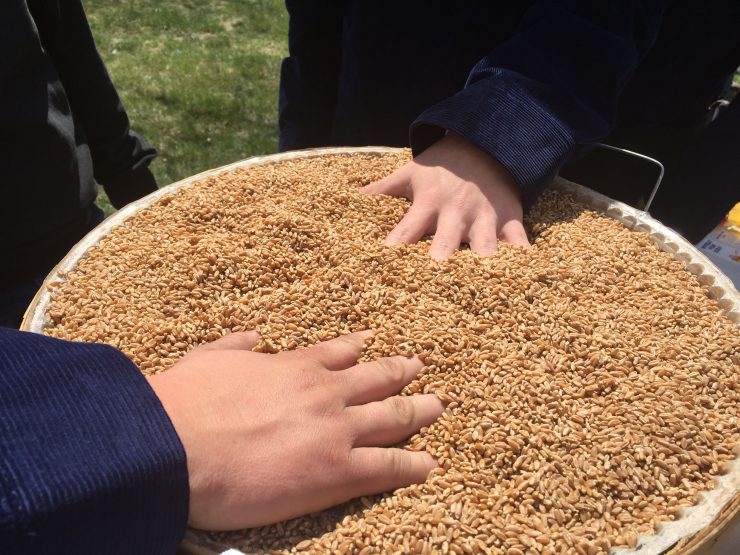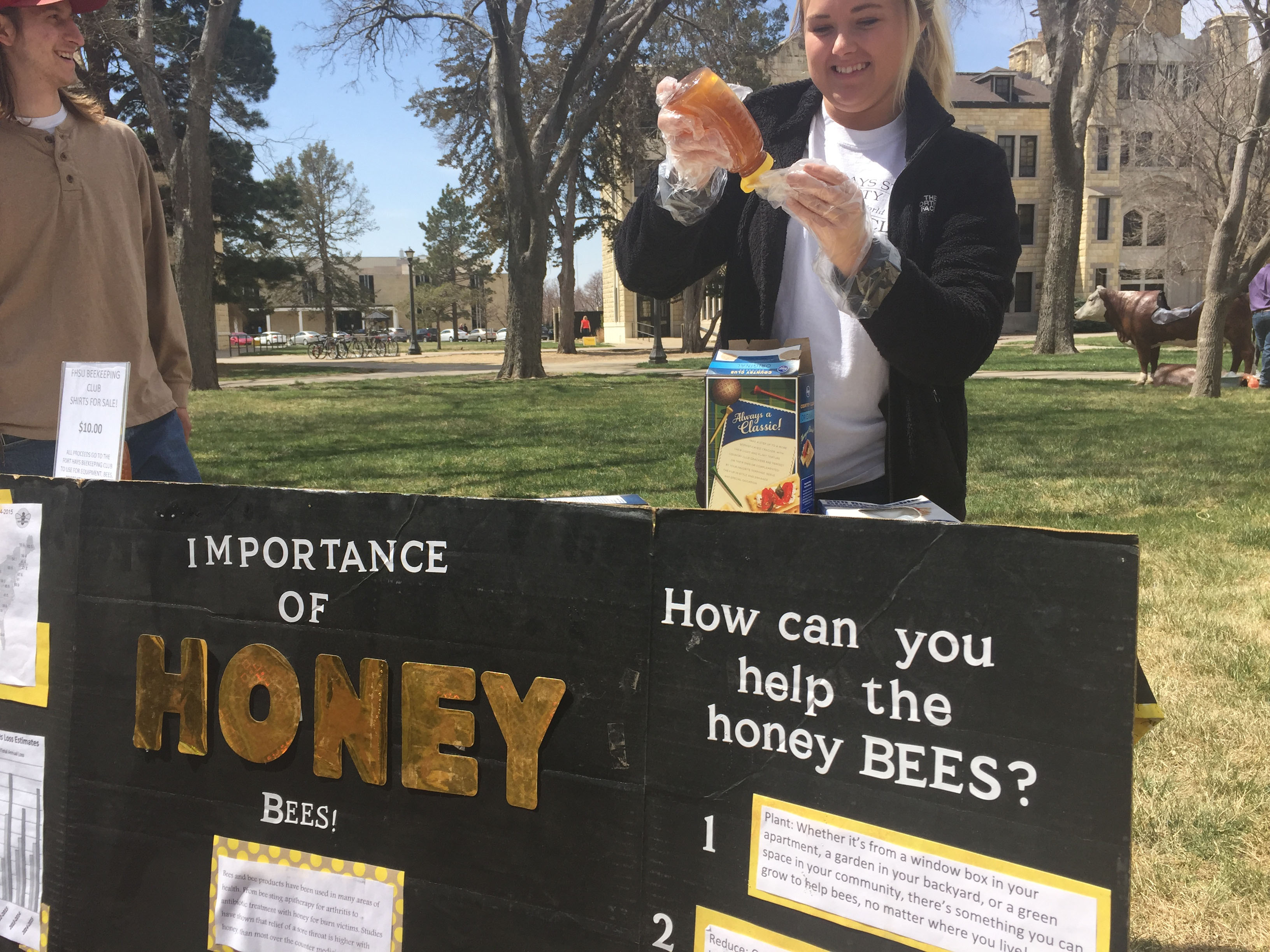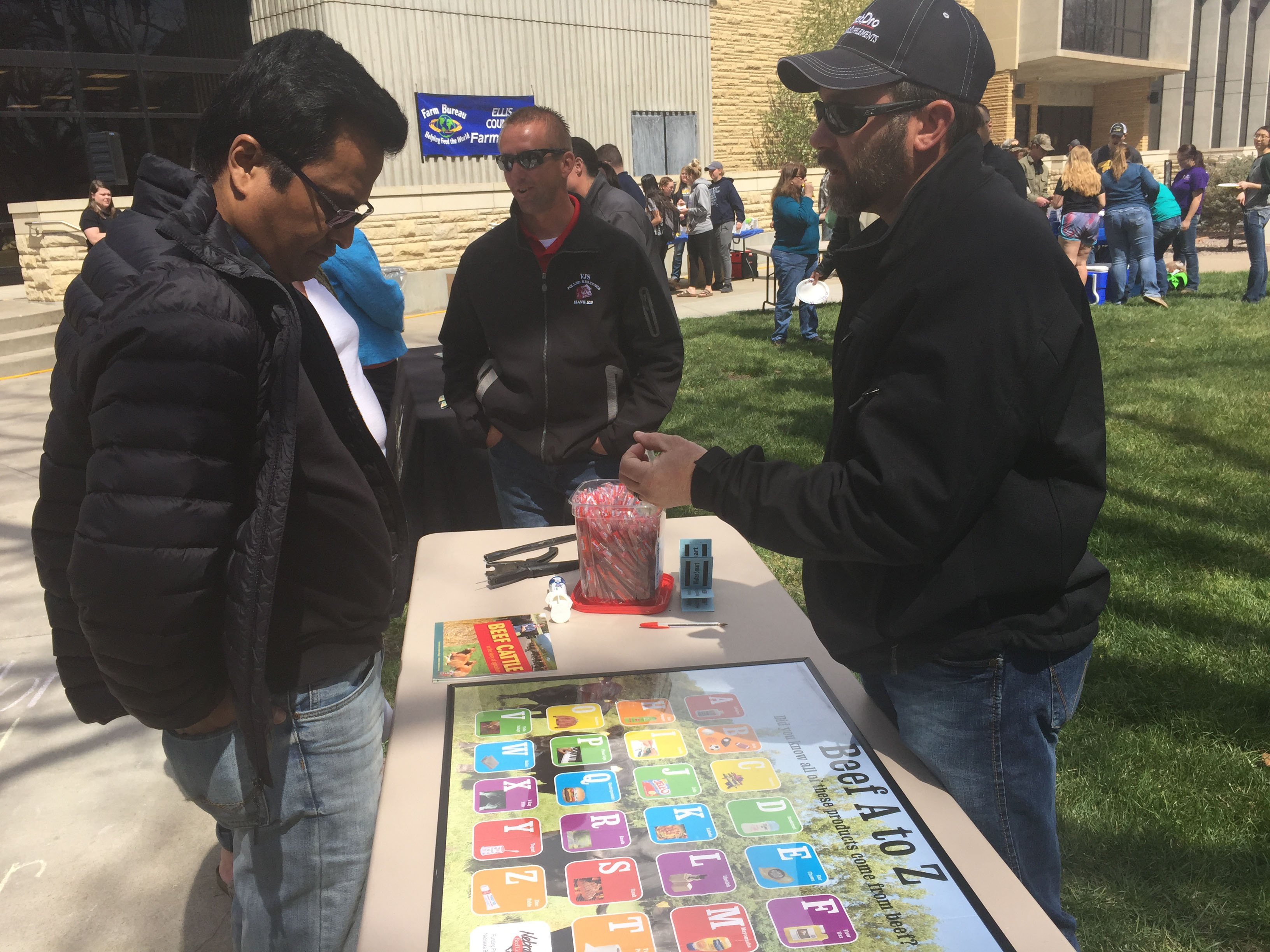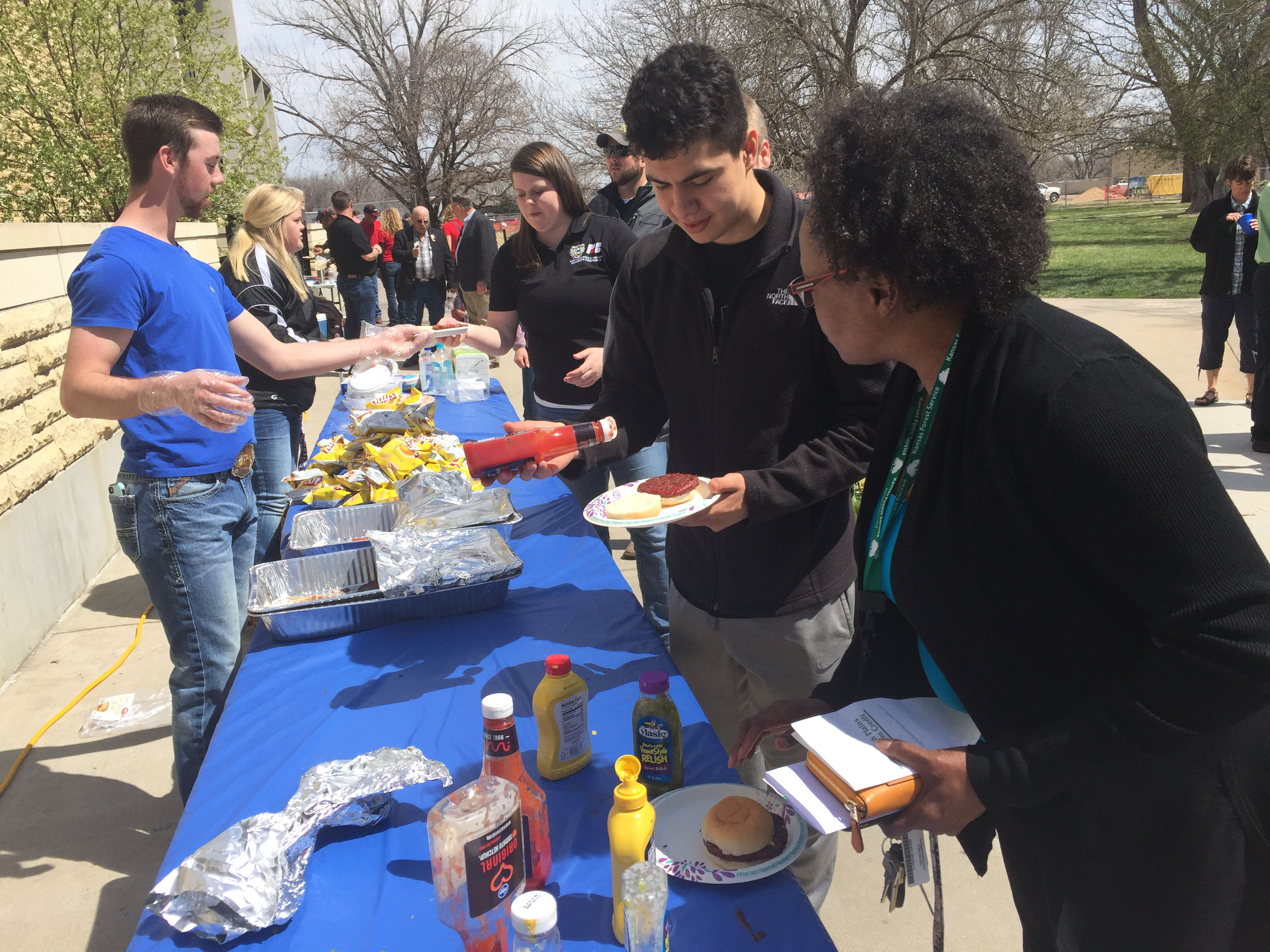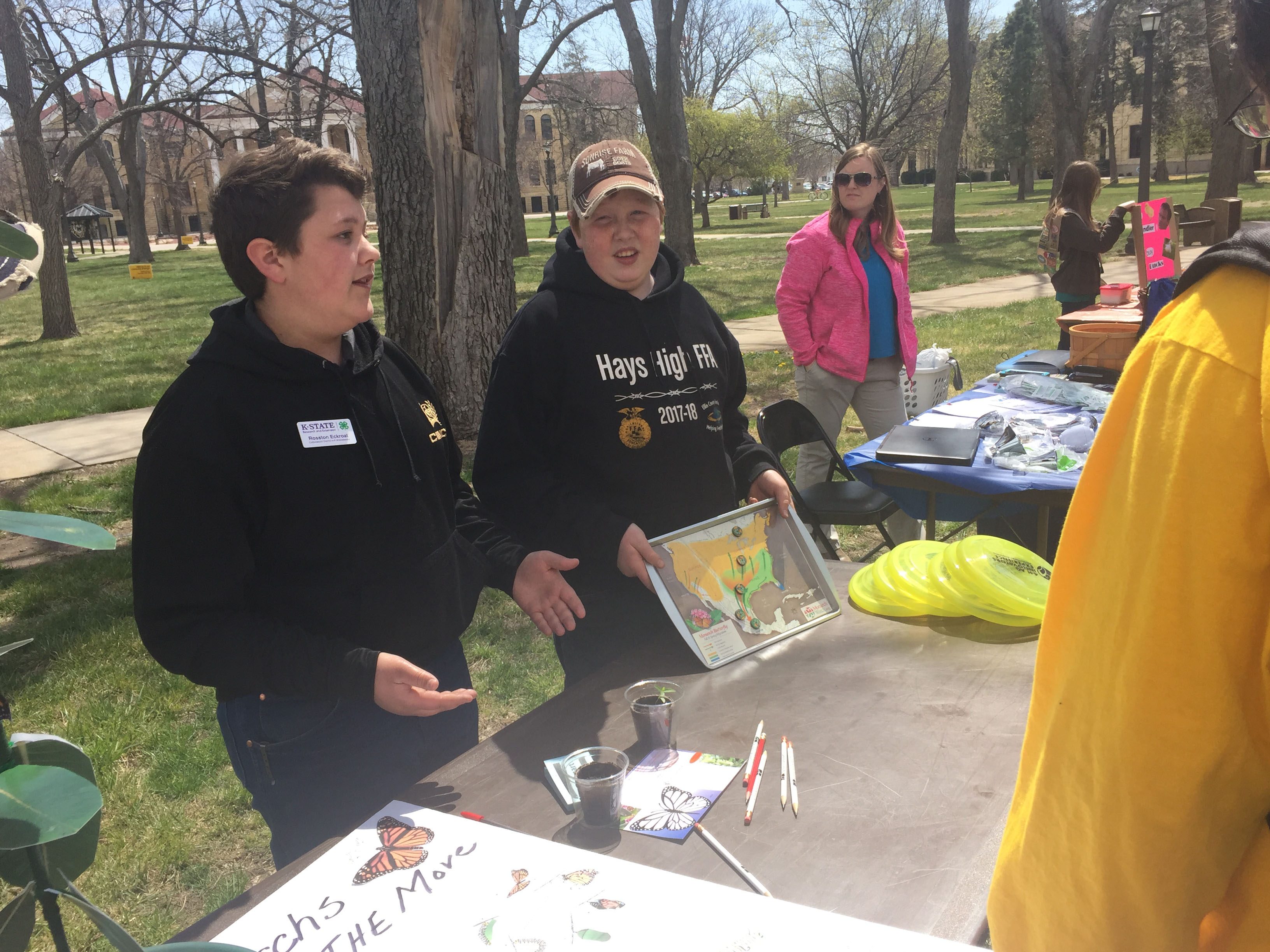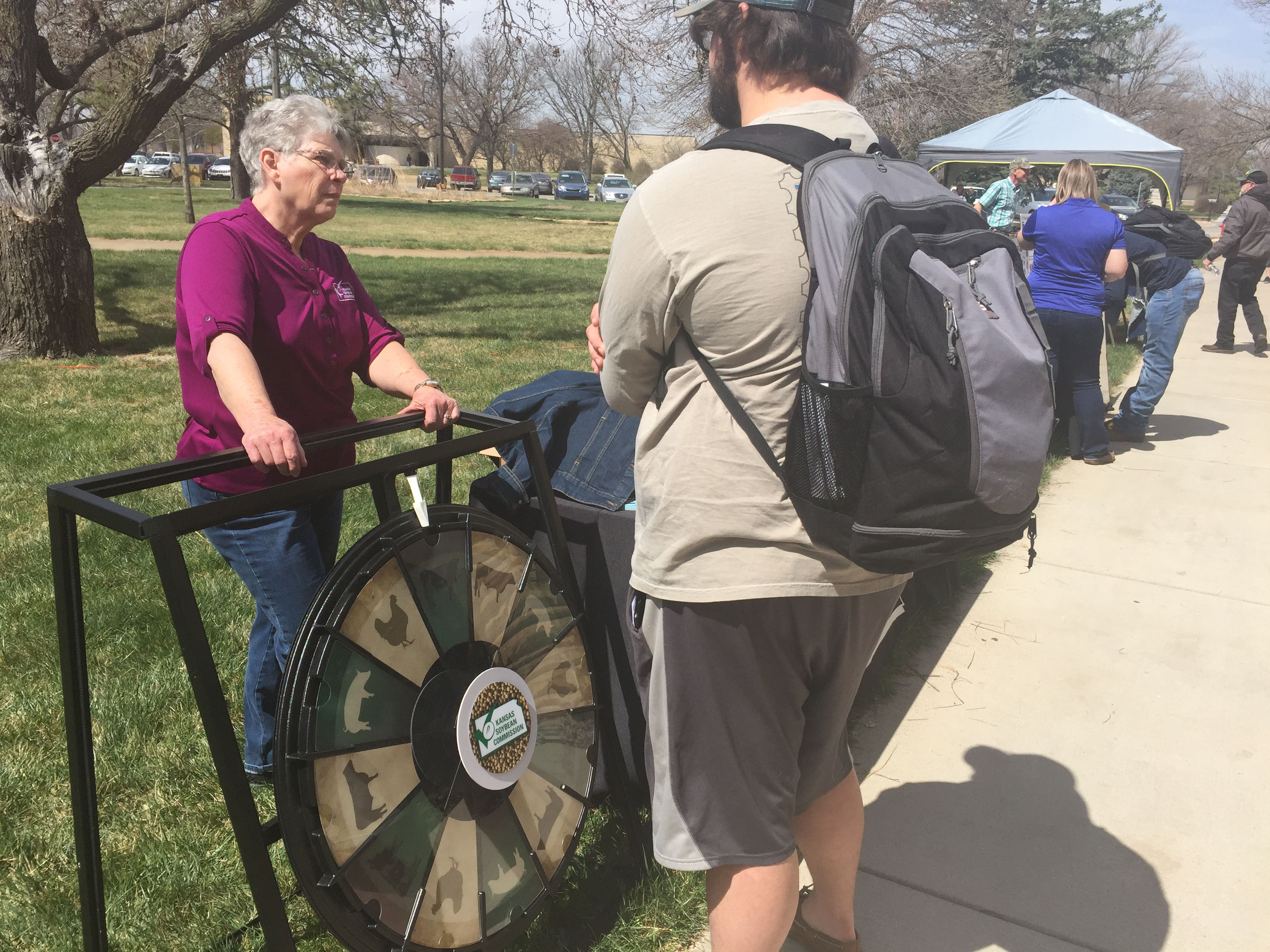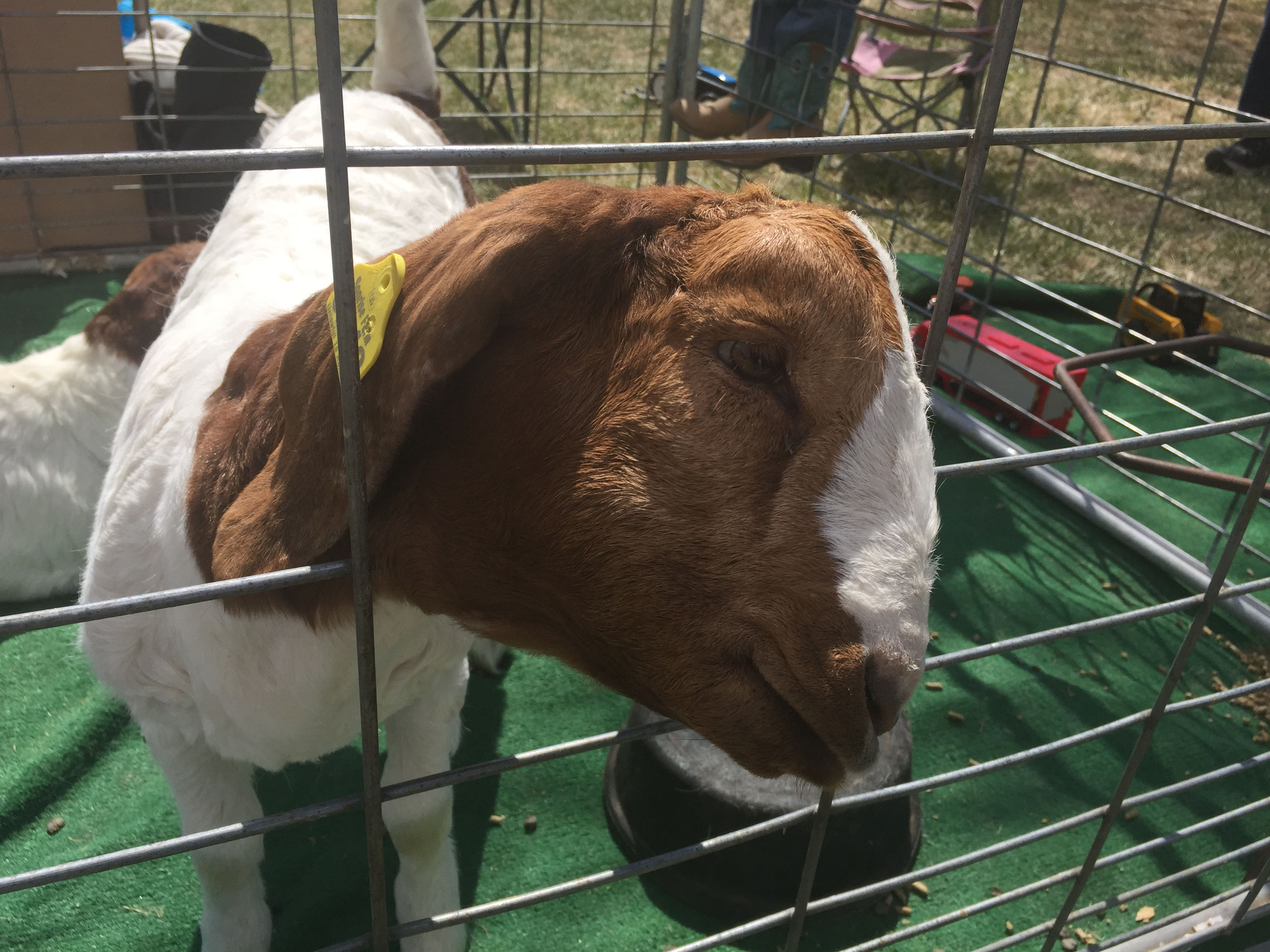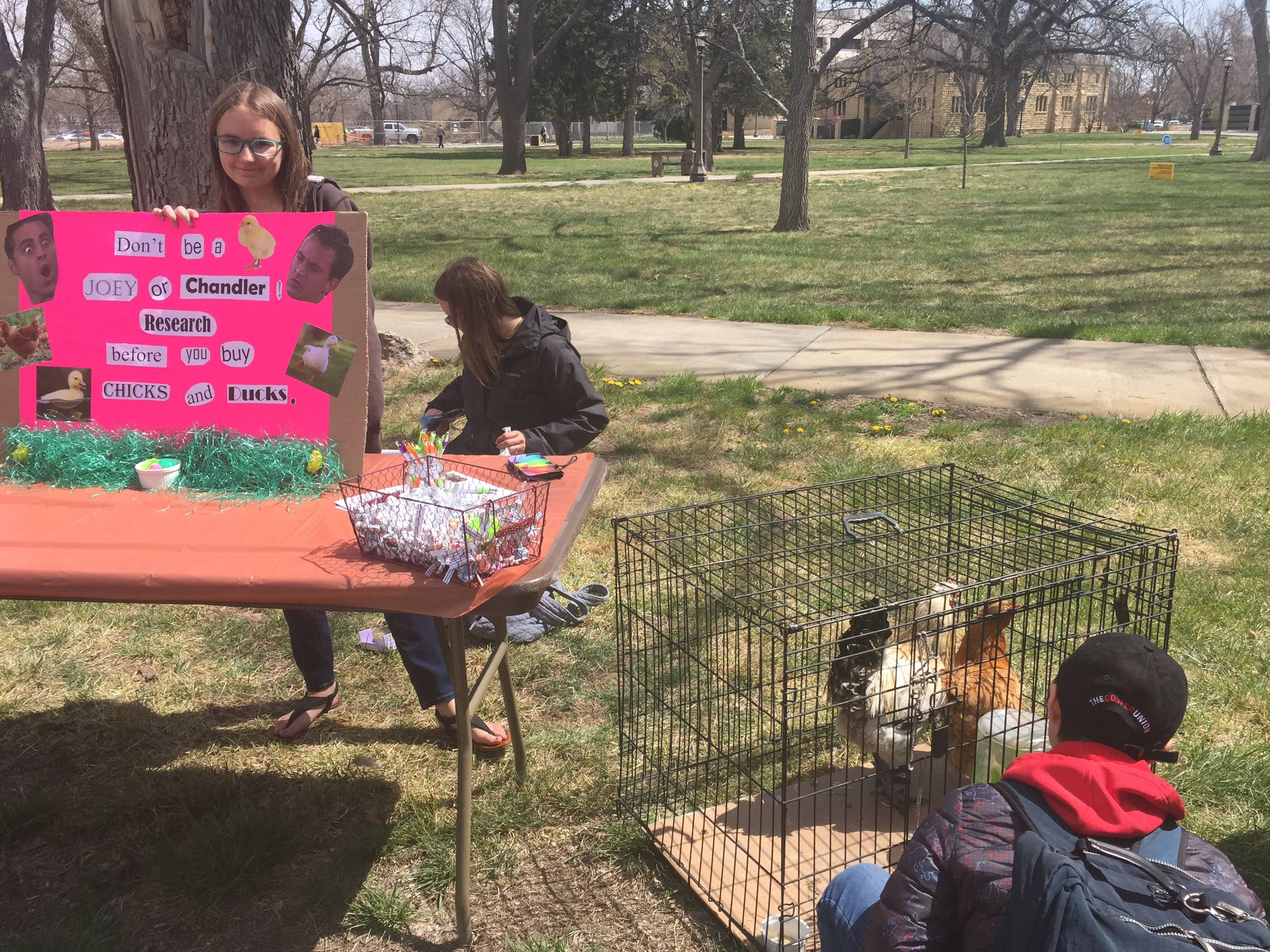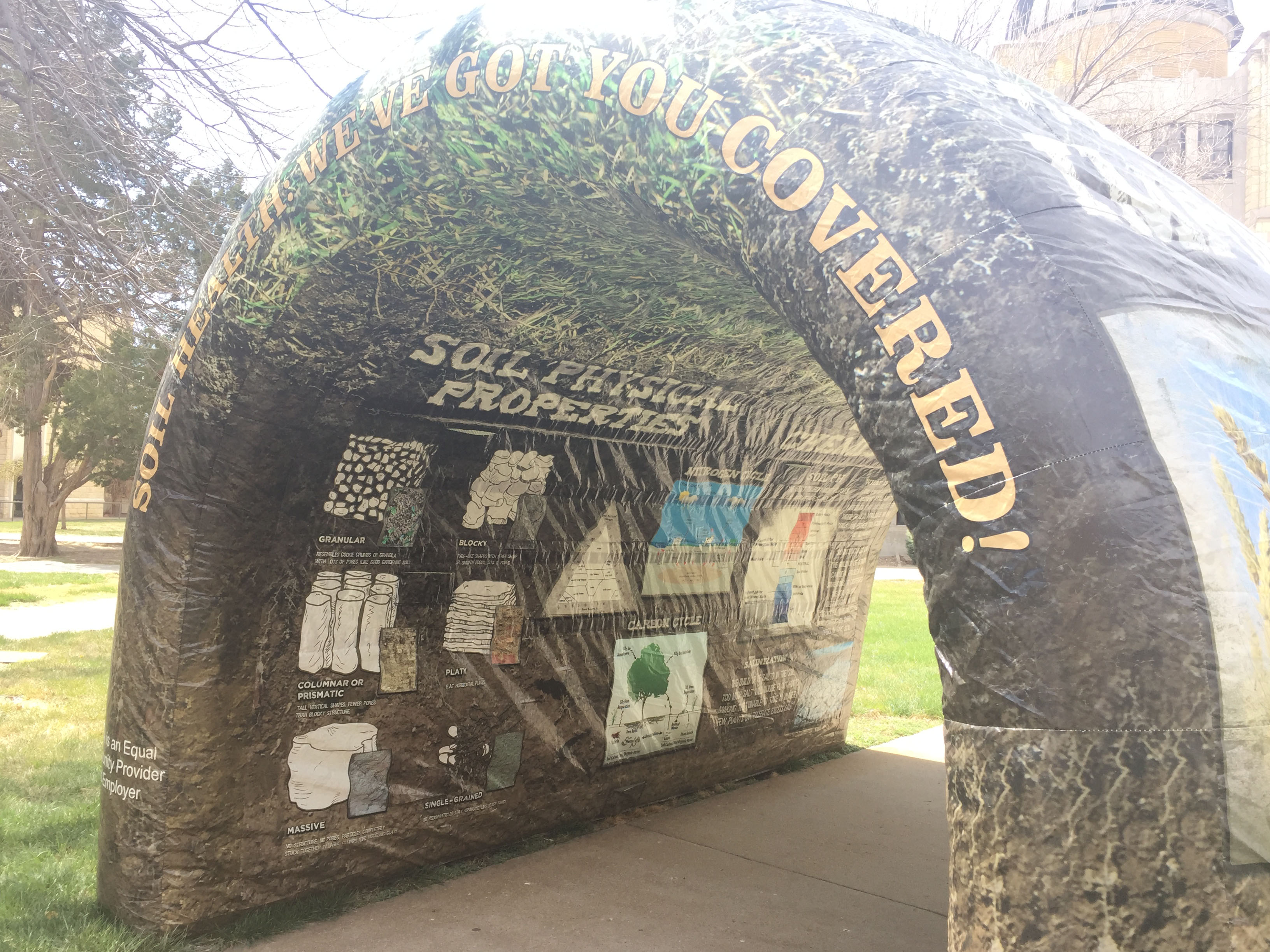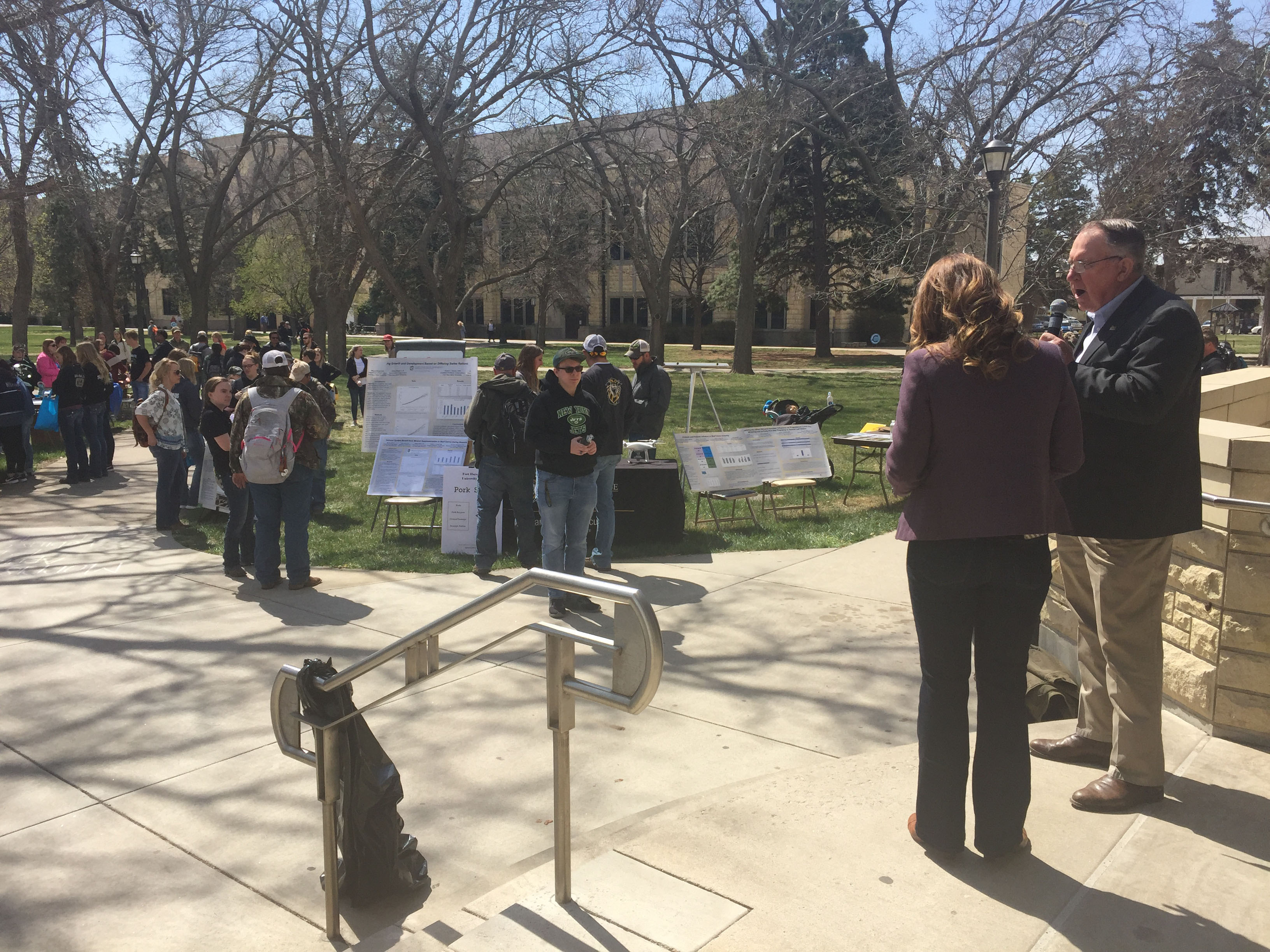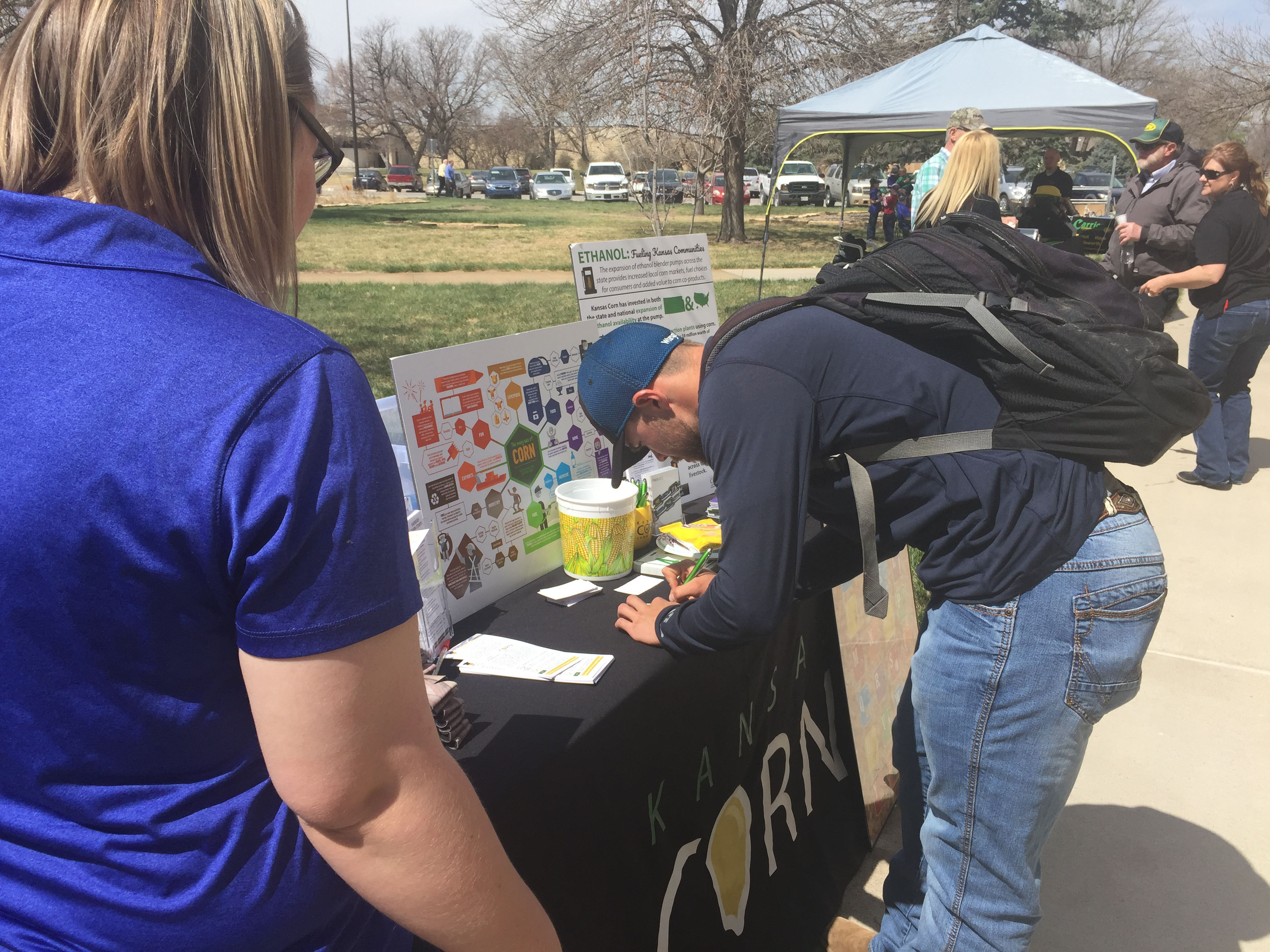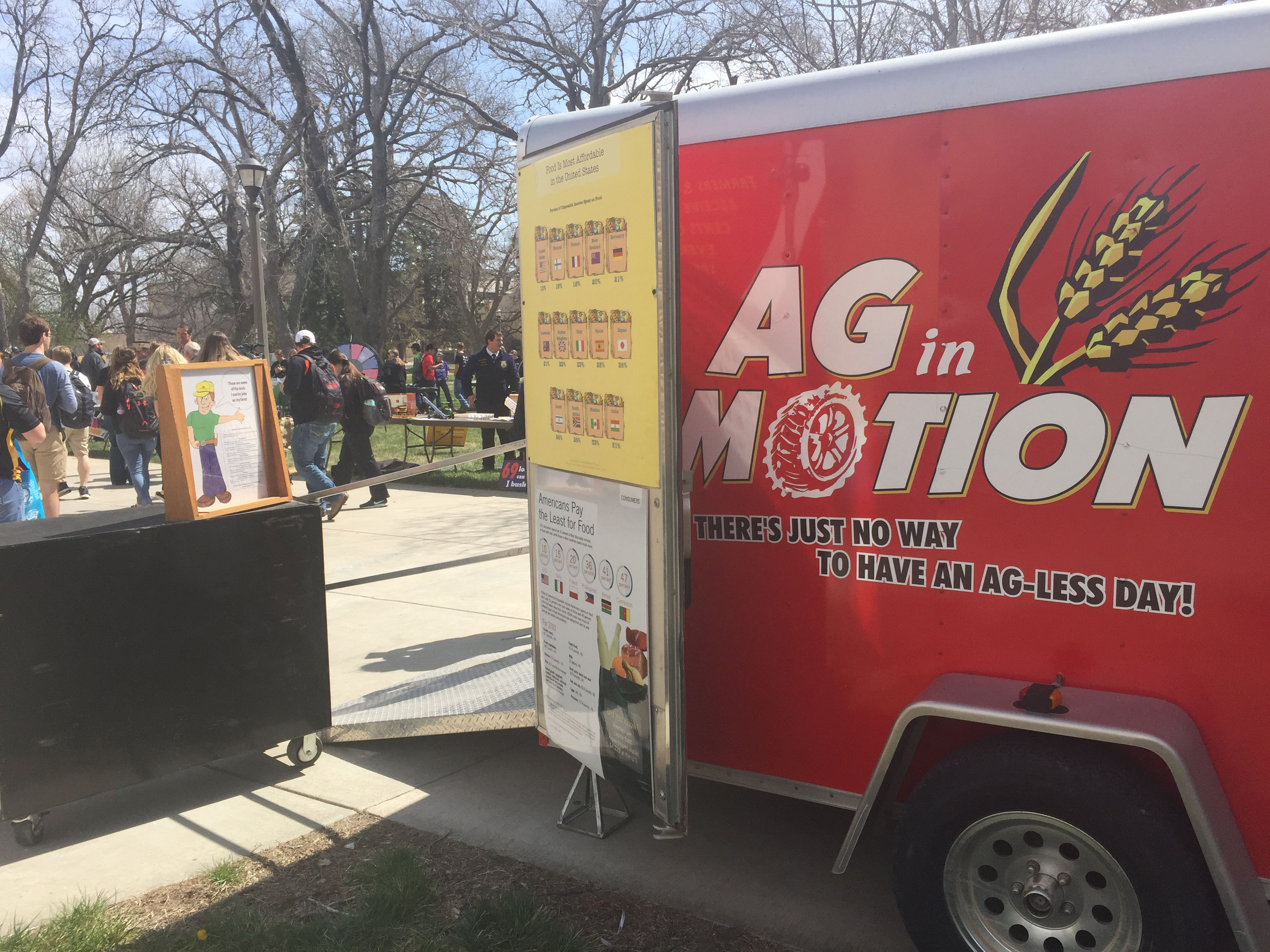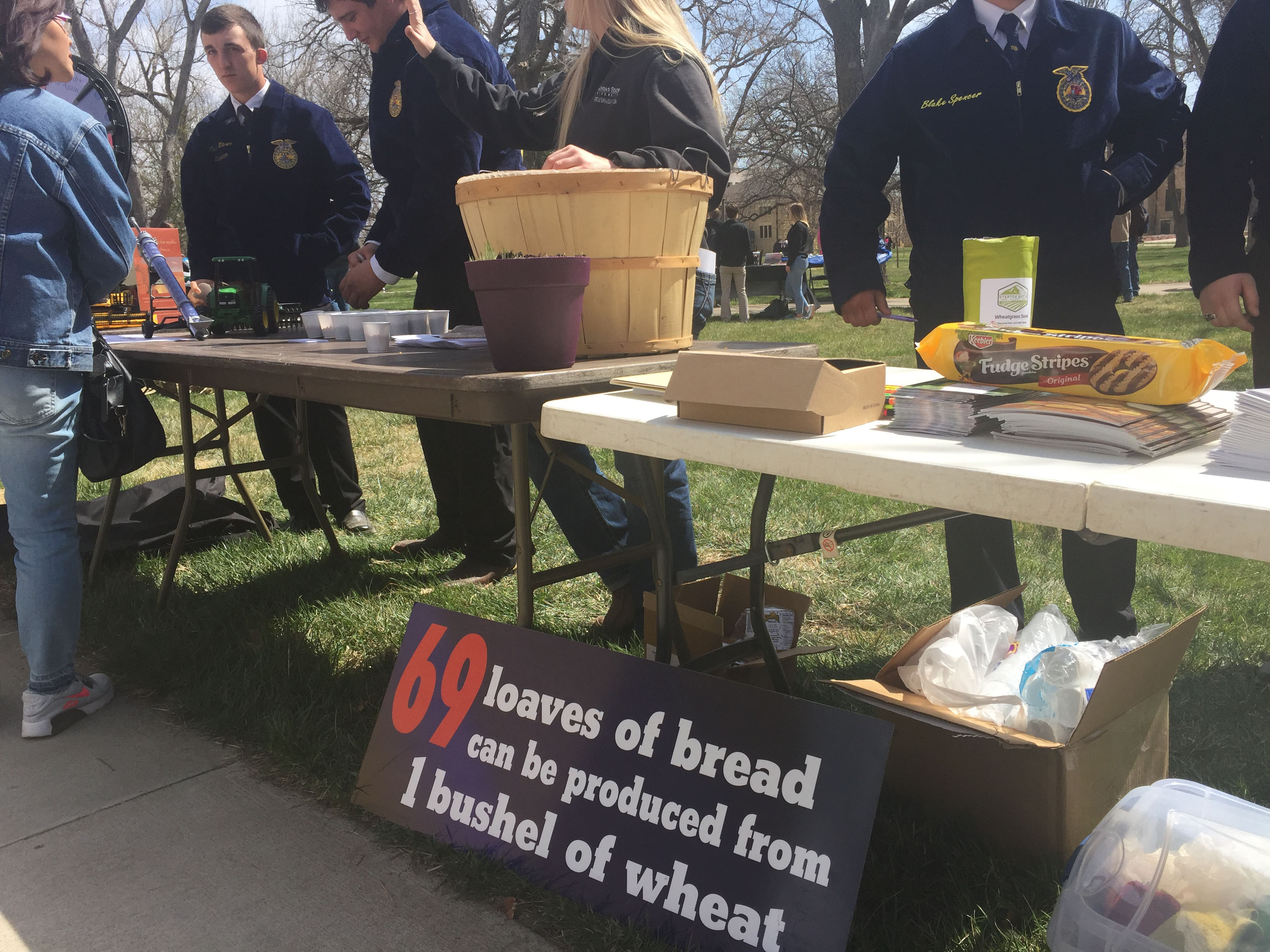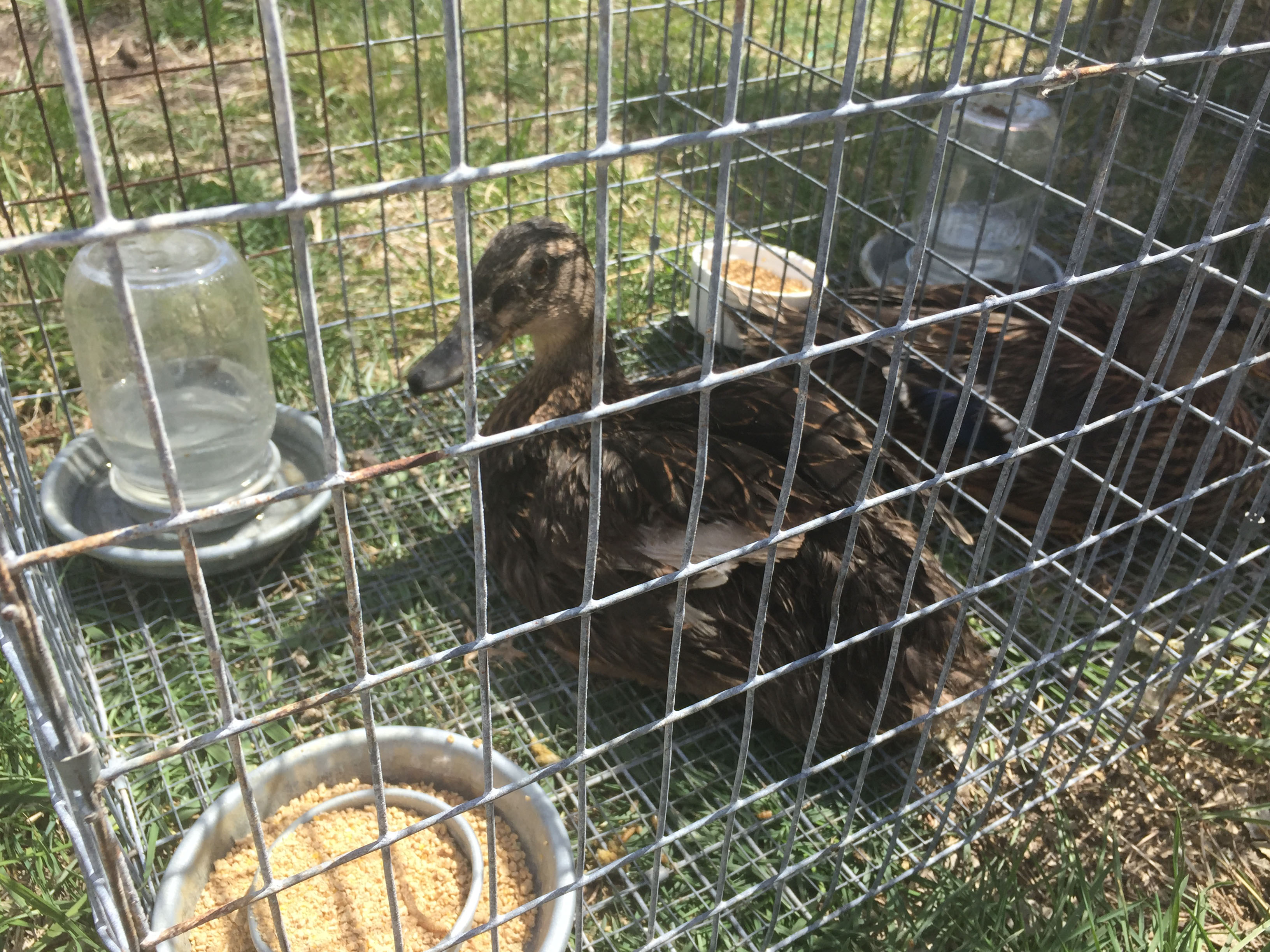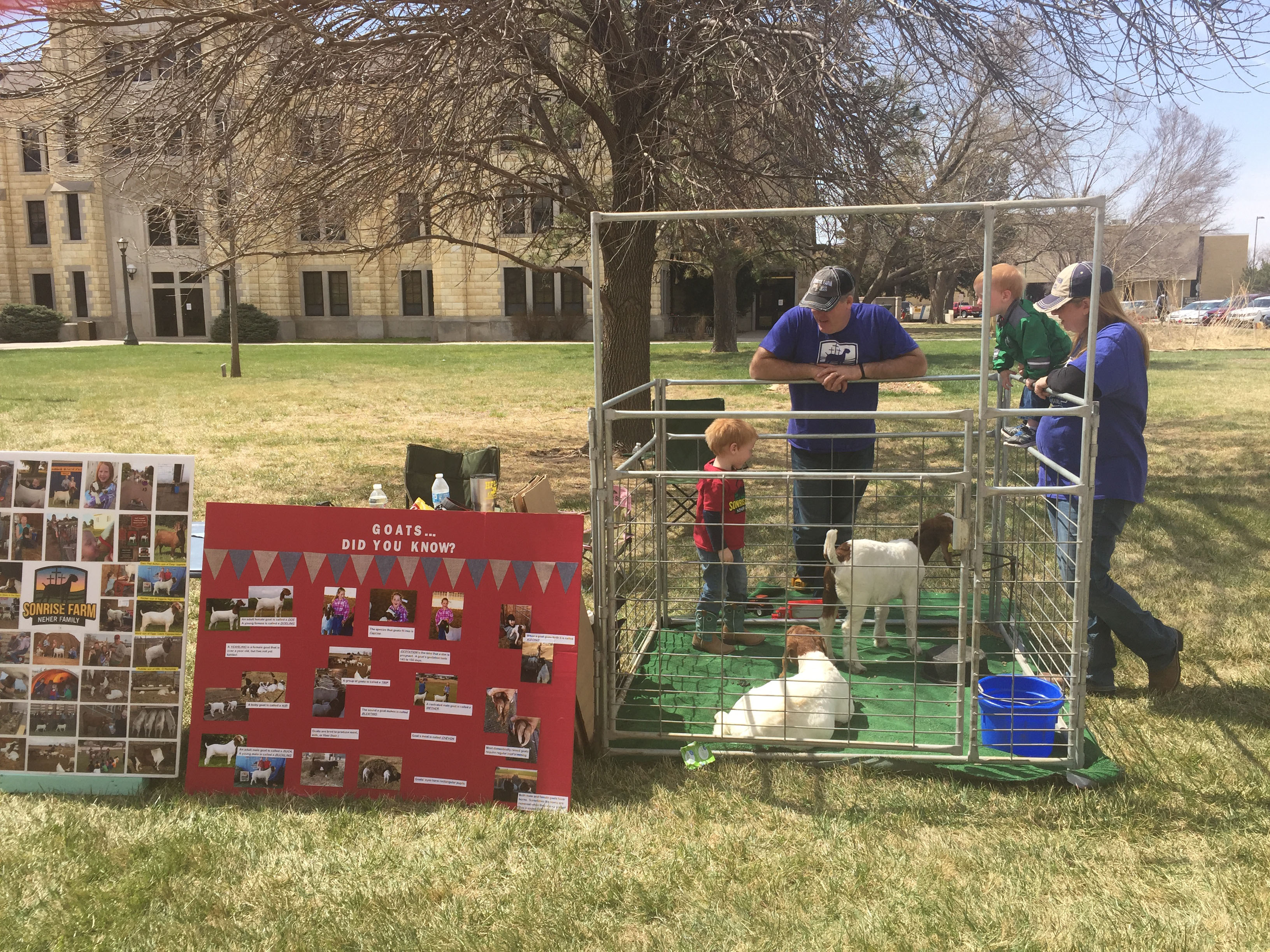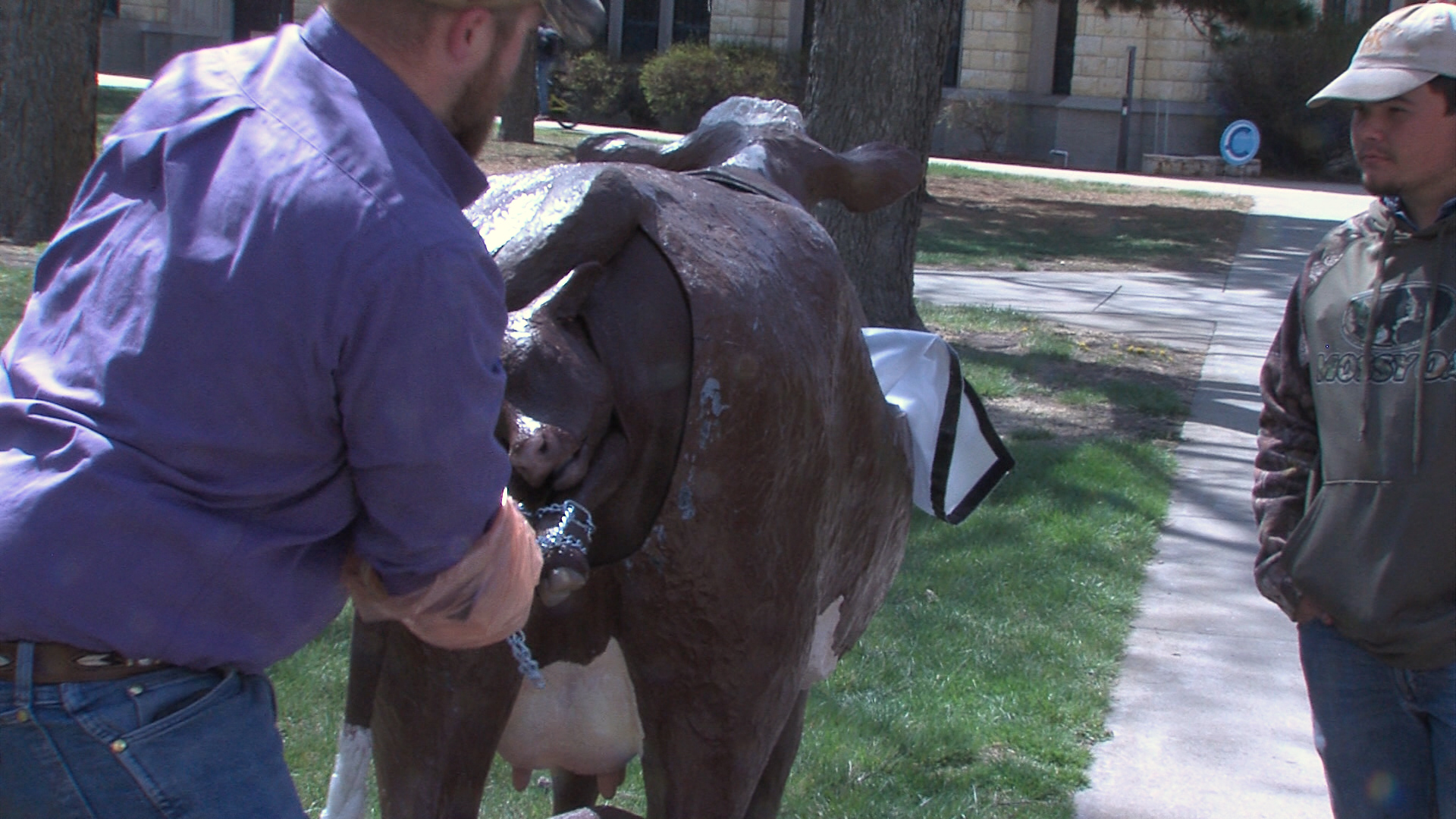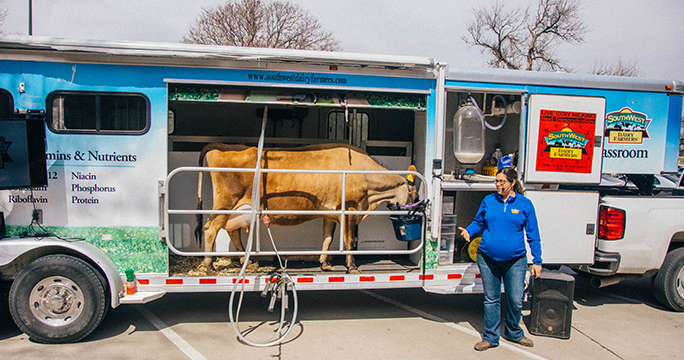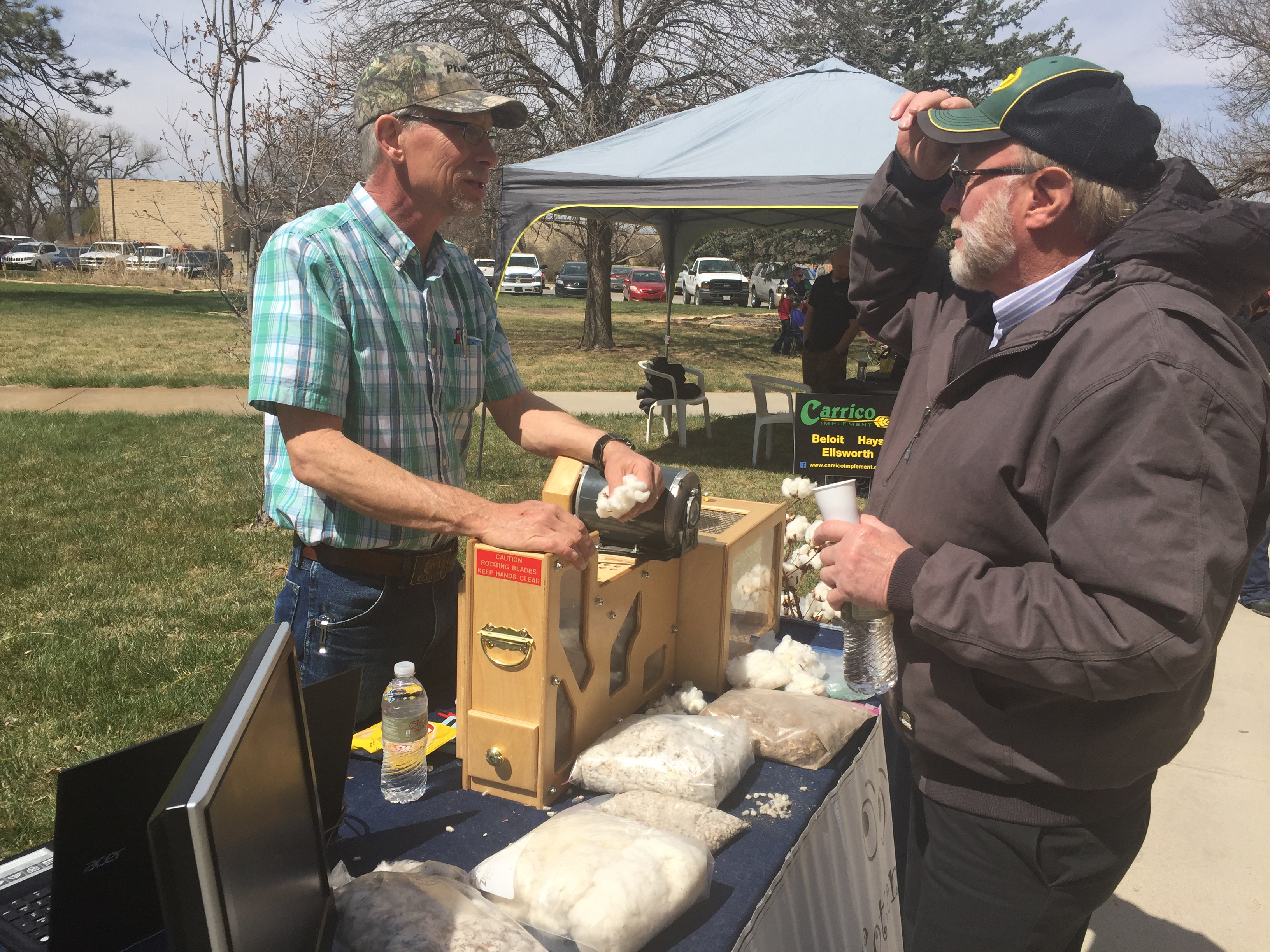
By BECKY KISER
Hays Post
Although she could have used her chairmanship of Fort Hays State University Agriculture Day as a resume builder, Shaelyn Akers doesn’t need to.
The senior agriculture business major from Cheyenne Wells, Colo., has already accepted a job with Midland Marketing in Hays as an assistant grain merchandiser.
“I’m looking forward to meeting a lot of the farmers in the area and being able to help them with their operation,” Akers said. “I’ll be helping the advisory team buy and sell the farmers’ grain, working with their position.”
Wheat was just one of the many commodities visitors could learn about in the FHSU quad Tuesday where they enjoyed a free beef meal on a perfect spring morning.

“It takes one bushel of wheat to produce 69 loaves of bread,” WaKeeney FFA high school sophomore Carter Minson explained to an international FHSU student.
Minson, along with senior Blake Spencer, were demonstrating how much a bushel of wheat weighs — 60 pounds — and handing out samples of wheat kernel snacks. Models of farm equipment used to harvest wheat lined the table top along with a variety of foods made with wheat.
“Even though Kansas is a leading wheat-producing state, it’s crazy how much people don’t know about wheat,” Minson said.
“Somebody asked how many states are in the wheat production business,” Spencer said. “They didn’t know and we had to tell them it’s 41.”
Spencer works at Frontier Ag in WaKeeney and will continue there when he graduates next month. Minson currently serves as treasurer of their FFA chapter.

Members of the Hays High School FFA talked to the crowd about growing sunflowers for seed and oil and how the monarch butterfly plays a role in assisting with pollination of flowers and some crops.
Bees are vital to crop pollination. FHSU Bee Club Ryan Engel and Elissa Jensen explained why as they gave out samples of the lightly colored, lightly sweet honey harvested from the university’s two bee hives.

Girls Scouts from Troop 10058 were there with chickens and ducks, talking about humane ways to raise the poultry.
Other participants provided information about soil and water quality and quantity.
One student from China was surprised to learn how much bigger American farms are than those in his country.
The Sonrise Farm, operated by the Neher family of Pfeifer, had two of their Boer meat goats in a pen on the green grass. People were invited to lean down and pet the goats but cautioned about the goats’ propensity to nibble on loose clothing.

“Goat meat production is increasingly dramatically in the U.S.,” Jeff Neher said. “It’s a very lean meat that’s high in protein.” Sonrise Farm has been raising show does, wethers and registered breeding stock the past four years.
Akers is also a member of the FHSU Collegiate Farm Bureau chapter, which organized Agriculture Day. The event was formerly known as Beef Day and was reorganized last year to include all types of Kansas agriculture.
“This was the first time we invited all these commodity commissions and the FFA kids,” said Steph Eckroat, coordinator for Ellis County Farm Bureau. “Next year we hope to invite area school children and the general public to attend.”

Demonstrations included a life-size model of a cow giving birth by Dr. A.J. Tarpoff, an assistant professor and Extension Beef Veterinarian at Kansas State University, Manhattan. The crowd watched with rapt attention as he talked them through the birth process, using the same supplies and equipment utilized by ranchers, and in difficult cases, by a veterinarian, to help pull a calf from the mother’s body.
An old fashioned miniature cotton gin was in use by the Southern Kansas Cotton Growers Coop and the Southwest Dairy Museum brought their mobile cow milking unit.
The Kansas Soybean Commission and Kansas Corn Growers Association were also on hand as was Harry Watts, director of the Kansas Farm Bureau Foundation in Manhattan and an FHSU alum. Other booths featured the latest technology for use in agriculture, including drones.
“I love everything about agriculture. It’s always been in my blood and it always will be,” Akers vowed as she surveyed Ag Day from the steps of the Memorial Union.
She grew up on her family’s farm in eastern Colorado, helping with production of wheat, milo, corn and feed, along with the cow/calf operation. They’ve raised horses, pigs and even buffalo.
“We’re the ones feeding the world, putting the food on the plate,” Akers added. “Everyone needs to be aware of that.”
